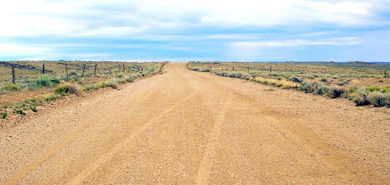Poll: Rural Residents More Pessimistic Than Last Year
LINCOLN, Neb. — Rural residents were feeling quite pessimistic about their present and future in this year’s Nebraska Rural Poll this year.
Poll organizers note that the poll is taken annually in late winter and early spring, so it reflects opinions at that time; those opinions can change in a matter of months as conditions change. In February and March, for instance, rural Nebraskans no doubt had drought on their minds and the overwhelmingly red state still might have been smarting over President Obama’s re-election.
Still, the increase in pessimism in the last year was striking, they said. In 2013, only 34 percent of respondents said they expected to be better off in 10 years, down from 45 percent last year and the lowest in the 18-year history of the Nebraska Rural Poll. The proportion of respondents who said they expect to be worse off in 10 years was at an all-time high – 32 percent, up from 20 percent last year.
Rural Nebraskans also were less positive about their current situation, with 42 percent saying they were better off than they were five years ago, compared to 51 percent in 2012. The proportion of rural Nebraskans who believed they were worse off than they were five years ago increased from 21 percent to 26 percent.
The 18th annual University of Nebraska-Lincoln poll was sent to 6,320 households in Nebraska’s 84 nonmetropolitan counties in March and April. Results are based on 2,317 responses.
Although the poll found unprecedented levels of pessimism about the future, it did reflect a fairly consistent trend over its history: Respondents tend to be most pessimistic or doubtful in times of uncertainty, not in the midst of bad times, said Becky Vogt, poll manager.
Earlier this year certainly qualified, as rural Nebraskans were reflecting on 2012’s drought, considered the worst in at least 50 years, and wondering whether it would continue through this year’s growing season, noted Brad Lubben, UNL public policy specialist.
National politics also might have played a role in rural Nebraskans’ pessimism, said Randy Cantrell, rural sociologist with the Rural Futures Institute. It wasn’t just that Democrat Barack Obama was re-elected in 2012, with only 38 percent support statewide in Nebraska. It might also reflect the heightened ideological battles that don’t seem to subside even after elections are over, feeding into the angst of voters.
Beyond the pessimism findings, the 2013 Nebraska Rural Poll’s findings about attitudes toward their communities struck a familiar note. For example:
– Seventy-five percent rated their communities as friendly, 64 percent as trusting and 67 percent as supportive. Residents of smaller communities are more likely to rate their towns favorably on these social dimensions.
– Fifty-five percent of rural Nebraskans said it would be difficult to move away from their communities; 30 percent said it would be easy.
– Fifty-eight percent disagreed that their communities are powerless to control their future.
– Rural Nebraskans are generally satisfied with basic services and amenities such as fire and police protection, parks and recreation, library services, education and more, and less satisfied with entertainment, shopping, restaurants, streets and roads, arts and cultural activities and local government.
– They also are generally satisfied with their marriages, families, friends, religion/spirituality and the outdoors, less so with job opportunities, income and financial security during retirement.
Poll organizers note that residents of the smallest communities recognize their towns’ shortcomings but also appreciate their strengths. They feel invested in their communities and want to stay; that is especially true of older residents.
The Rural Poll is the largest annual poll of rural Nebraskans’ perceptions on quality of life and policy issues. This year’s response rate was about 37 percent. The margin of error is plus or minus 2 percent. Complete results are available online at http://ruralpoll.unl.edu.
With its 18-year history, the poll has a collection of data about rural trends and perceptions that is unmatched in the country, said Becky Vogt, project manager who’s been working on the Rural Poll since its second year.
The university’s Center for Applied Rural Innovation conducts the poll in cooperation with the Nebraska Rural Futures Institute with funding from UNL Extension and the Agricultural Research Division in the Institute of Agriculture and Natural Resources.


